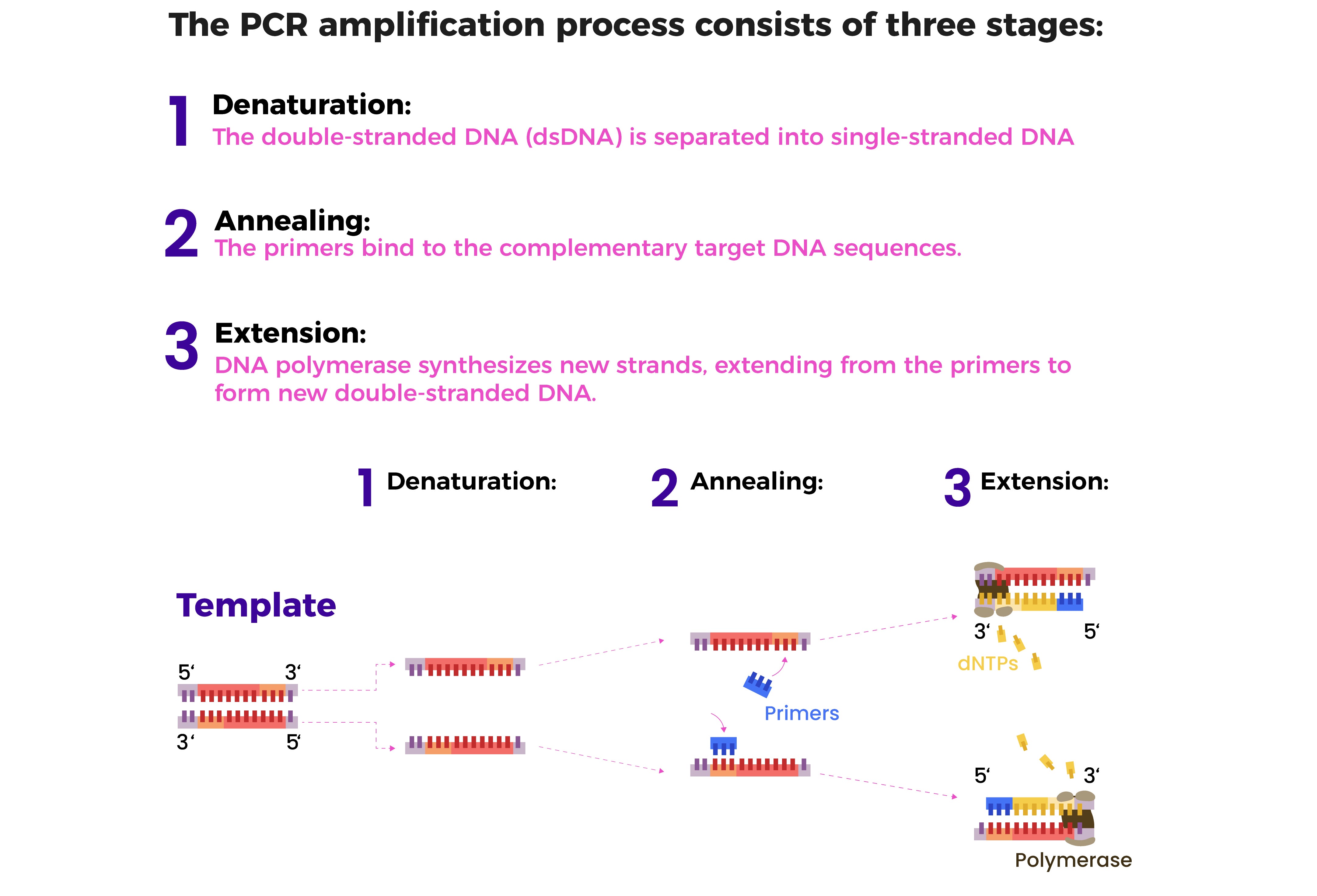
PCR and Amplification
Overview
PCR (polymerase chain reaction) is an invaluable tool for molecular biology research. It is used in laboratories around the world in a wide array of applications such as cloning, gene expression analysis, genotyping, sequencing, and mutagenesis.
Types of PCR Techniques
Conventional PCR: Basic amplification for cloning, genotyping, sequencing.
Quantitative Real-Time PCR (qPCR): Uses fluorescent dyes or probes to monitor DNA amplification in real time.
● High sensitivity and specificity
● Enables precise quantification of gene expression levels
● Widely applied in research, diagnostics, and clinical testing.
Digital PCR (ddPCR): Partitions the sample into thousands of microdroplets, each undergoing independent amplification.
● Ultra-sensitive and precise
● Ideal for detecting rare mutations, low-abundance targets, and copy number variation analysis
Isothermal Amplification:Techniques like LAMP (Loop-mediated Isothermal Amplification) and RPA (Recombinase Polymerase Amplification) amplify DNA at a constant temperature.
● No thermal cycler required
● Fast, portable, and equipment-light
● Ideal for point-of-care testing and low-resource settings












